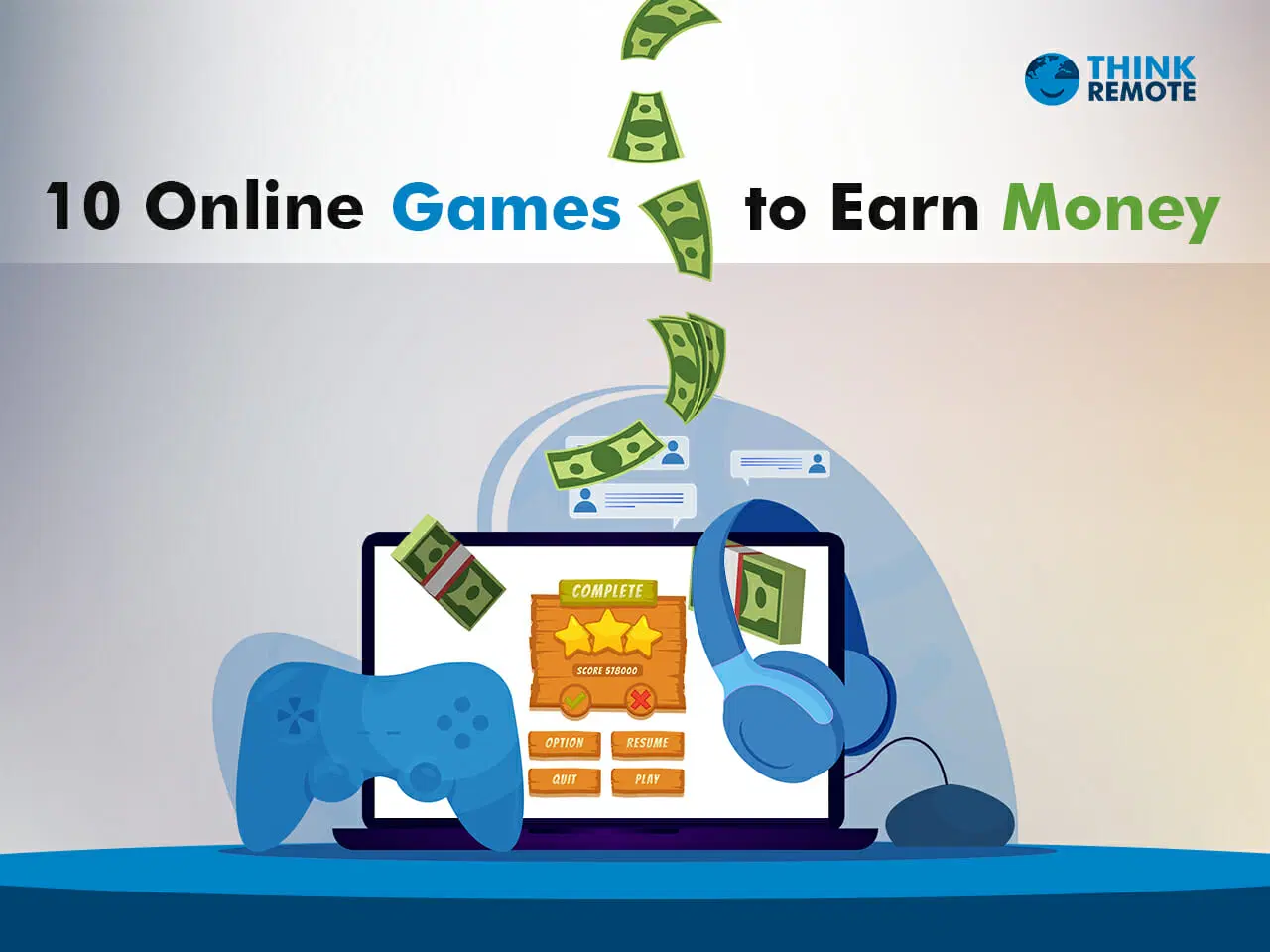Play and Earn Rewards: The Ultimate Guide to Earning While Gaming
Wiki Article
Just How Play-to-Earn Games Are Revolutionizing the Video Gaming Market

Comprehending Play-to-Earn Mechanics
The play-to-earn design has actually become a revolutionary principle within the pc gaming industry, basically modifying the relationship in between gamers and the games they engage with. This model makes it possible for players to make concrete rewards, frequently in the form of cryptocurrencies or non-fungible tokens (NFTs), with their in-game activities. Unlike traditional gaming structures that normally generate income from via subscription costs or single acquisitions, play-to-earn games incentivize gamer involvement by straight linking gameplay achievements to real-world worth.At the core of play-to-earn technicians is the combination of blockchain modern technology, which makes certain openness and conclusive ownership of in-game possessions. Players can purchase, sell, or trade these assets in decentralized industries, encouraging them with financial agency previously unseen in standard video gaming settings. Each player's contribution to the game environment-- be it with skillful play, tactical trading, or neighborhood involvement-- improves the overall pc gaming experience while supplying them a possibility to produce earnings.
As gamers spend time and sources, they not only deepen their interaction with the video game yet likewise foster a dynamic economic situation that mirrors their collective initiatives (play and earn rewards). This makeover of gameplay right into a monetizable venture is improving both player motivation and game style
Financial Influence On Gamers

Moreover, play-to-earn models democratize access to financial benefits. Players from varying socio-economic histories can take part and potentially earn significant income, linking spaces that exist in standard work markets. This standard change promotes financial self-reliance, especially in regions where work possibilities might be limited.
Furthermore, the introduction of online economies allows players to develop wealth through tactical investments in in-game properties, which can value gradually. This has led to the development of a new course of players who approach play-to-earn as a serious income-generating activity, often causing the reinvestment of incomes into the video gaming community itself. Inevitably, the economic effect on players is extensive, as they navigate a landscape where leisure and resources converge.
The Role of Blockchain Technology
What makes blockchain innovation a keystone of play-to-earn games is its ability to supply safety and security, decentralization, and transparency. By making use of a dispersed ledger system, blockchain ensures that all deals within the game are tape-recorded in an unalterable manner, allowing players to confirm ownership of in-game possessions without counting on a central authority. This transparency fosters trust among gamers, as they can individually validate the scarcity and provenance of electronic items, enhancing their value.Additionally, blockchain modern technology encourages players through decentralization, enabling them to participate in peer-to-peer deals. Players are no more restricted to in-game economic situations regulated by developers; rather, they can trade, market, or rent their possessions freely in open industries. This shift not only raises the overall liquidity of electronic possessions yet additionally encourages more purposeful player interaction, as users can directly benefit from their time and initiative purchased the video game.
In addition, blockchain assists in the development of smart agreements, which automate various in-game processes, from rewards distribution to governance systems. play and earn rewards. This technology decreases the danger of fraud and makes sure justice, more strengthening blockchain's important role in the development of play-to-earn pc gaming
Objections and challenges
Frequently, play-to-earn video games face considerable difficulties and criticisms that can impede their growth and acceptance within the more comprehensive video gaming neighborhood. One main problem is the potential for a speculative bubble, where the value of in-game assets can fluctuate drastically, resulting in financial losses for players. This volatility threatens the stability that traditional video gaming settings normally offer.Moreover, the assimilation of blockchain innovation often elevates concerns about environmental sustainability. The power intake connected with certain blockchain networks has actually stimulated discussions pertaining to the environmental effect of these games. Critics argue that the carbon impact generated by play-to-earn systems might prevent eco-conscious players.
Additionally, there are problems concerning accessibility and inclusivity. Many play-to-earn video games require players to invest significant in advance capital to get essential assets, creating obstacles for those with restricted funds. This version can accidentally produce a divide between wealthier gamers and those who can not manage to take part.
Future Fads in Pc Gaming
As the pc gaming sector remains to evolve, several future fads are emerging that assurance to reshape the landscape of play-to-earn games and beyond. One substantial pattern is the raising combination of blockchain modern technology, which improves transparency and safety and security in purchases. This will likely result in better count on among players, motivating larger fostering of play-to-earn versions.
In addition, the rise of non-fungible tokens (NFTs) is set to transform electronic ownership, enabling players to really possess in-game assets. This shift will not only encourage players but likewise produce new economic opportunities within the digital ecosystem. The convergence of gaming with other markets, such as social media and decentralized finance (DeFi), is expected to foster innovative gameplay auto mechanics and monetization techniques.
Furthermore, improvements in synthetic intelligence and artificial intelligence will allow extra customized gaming experiences, dealing with individual player choices and enhancing involvement. The expanding emphasis on community-driven growth will likely influence game design, as gamers significantly get involved in forming their pc gaming settings. Jointly, these trends show a transformative future for the pc gaming industry, where play-to-earn designs will play a main function in redefining player interaction and worth creation.
Final Thought
To conclude, play-to-earn games represent a considerable shift in the gaming market, promoting economic opportunities through innovative mechanics that utilize blockchain modern technology. This design not just democratizes access to financial advantages for gamers from different socio-economic histories yet likewise urges area involvement and empowerment. Regardless of dealing with challenges and criticisms, the capacity for future innovations recommends that play-to-earn video games will proceed to form the gaming landscape, offering new opportunities for riches creation and gamer involvement.The introduction of play-to-earn games stands for a considerable change in the video gaming industry, reshaping the partnership in between players and the electronic economic climate (play and earn rewards).The play-to-earn version has emerged as a revolutionary idea within the video gaming sector, essentially modifying the connection between gamers and the video games they engage with. Unlike Gaming platform with rewards conventional gaming frameworks that normally monetize with subscription charges or one-time purchases, play-to-earn video games incentivize player participation by directly connecting gameplay accomplishments to real-world value
These cutting-edge video gaming systems equip players to generate real-world income through their in-game tasks, consequently transforming the traditional concept of video gaming from a simple activity into a viable financial opportunity. Regardless of facing difficulties and criticisms, the possibility for future developments recommends that play-to-earn games will proceed to form the gaming landscape, supplying new opportunities for riches creation and player involvement.
Report this wiki page